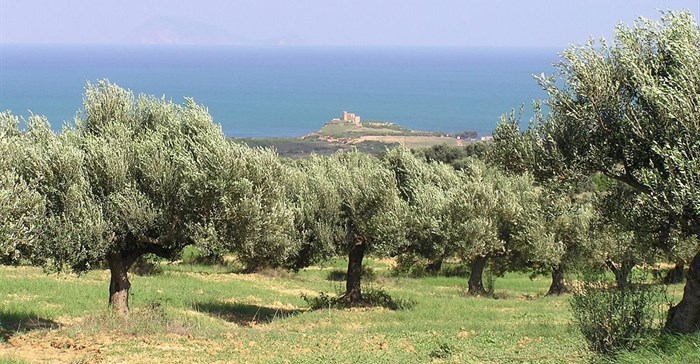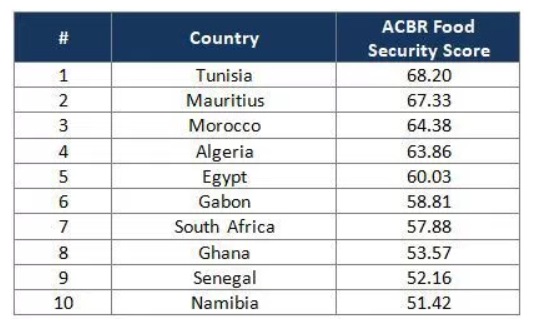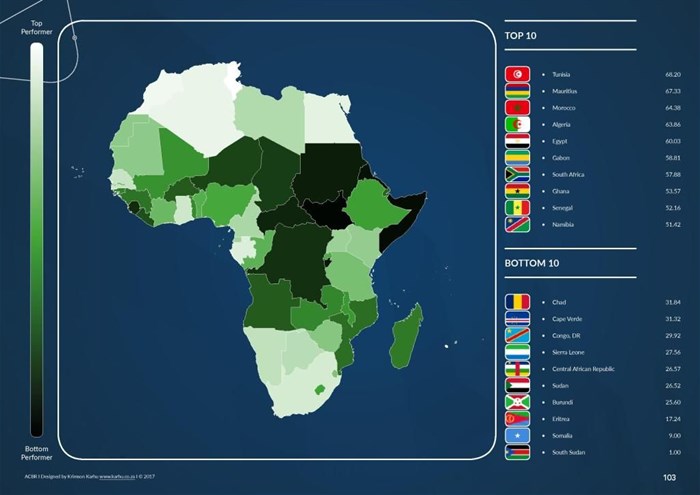Africa's top 10 most food-secure countries

Measuring a country's food security
There are several measures of a country’s food security situation, mostly health indicators. The percentage of malnourished children, included children suffering from stunting due to improper nutrition, provides a good snapshot of a country’s overall food situation. African countries have large divides between rich and poor, and childhood malnutrition is a measurement of how equitably a country’s most valuable commodity, food, is distributed.
The incident of obesity is rising among sub-Saharan African countries as some grow more affluent. Middle-class lifestyles tend to bring poor eating choices and less physical activity. However, the prevalence of obesity does not correspond with a country’s food security situation, and often extreme childhood stunting exists side by side in a country with increased adult obesity.
Another measurement is to what extent external food aid from such organisations as the World Food Programme must be provided to circumvent famine: which countries receive food aid, how much and at what frequency.
Just as the Africa Country Benchmark Report for 2017 amalgamates business and economic indexes to create an inclusive and holistic view of each African country’s performance, a review of this data gives insights into which countries are successfully expanding their food resources. These countries tend to be politically stable, with democratic governance, and have better economic performance resulting from their people-oriented politics.
For achievement in food security, here are Africa’s top 10 most advanced countries:

What do all of these countries have in common?
All are democracies, all are at peace, all have historic trade routes with foreign markets and none are geographically landlocked. As democracies, their governments are more attentive to the needs of their populations (i.e. voters). As countries at peace, they are able to focus national spending and efforts on food security. These conditions – more pro-people governance and absence of armed conflict – also lead to more prosperous economies, allowing citizens to purchase more and better quality food.
These ten nations also have export-driven trading economies, where movement of food stuffs have been going on for centuries. Such trade assures the availability of food even when local crops are affected by natural disaster. However, many of these countries are perennial food exporters, having long succeeded in growing surplus food for the international market.
The long-established societies of North Africa with their centuries-old trade ties with Europe and the Middle East have found food security that endows their peoples with Africa’s longest life expectancies. Libya, at present divided by civil war, has seen all social indicators decline, and while famine is not a problem now, no aspect of national life including food can be taken as “secure.” Otherwise, all North African countries – Algeria, Egypt, Morocco and Tunisia – despite their populations of poor people, who struggle for nutrition, are present on the ACBR 2017 list of Africa’s most food-secure nations.
These countries are also proactive in food production, recognising that food security is never 100% on a continent with widespread poverty and constantly striving for ways to boost farming output.
Namibia, for instance, may have largely a desert environment but made the Top 10 list for such initiatives as the Agricultural Mechanisation and Seed Improvement Project. In December 2017, Namibia received a $74m loan from Africa Development Bank that will finance 70% of the project that will end reliance on annual importation of agricultural seeds and basic grains, benefitting 295,000 crop farmers and 10,000 livestock farmers and boosting national food production.
The following map illustrates the Top 10 and Bottom 10 tech performers in the Africa Country Benchmark Report (ACBR).
Source: In On Africa

In On Africa (IOA) is an expert research, consulting and publishing firm in and focused on Africa. With more than 300 consultants across the continent, IOA provides clients with various Africa-focused research intelligence solutions, highly topical thought-leadership publications and skilled content marketing services. IOA aims to connect Africa’s potential.
Go to: www.inonafrica.com























